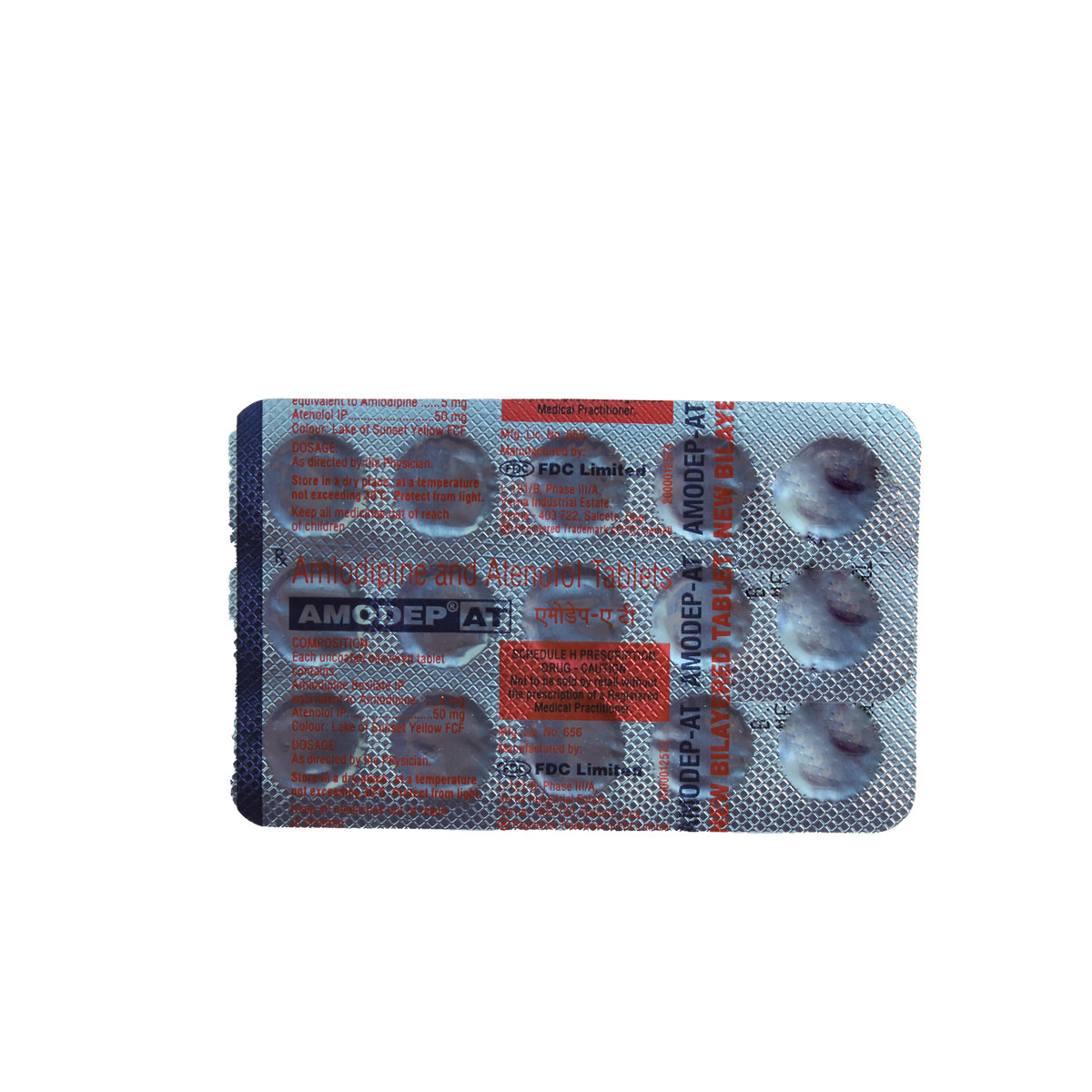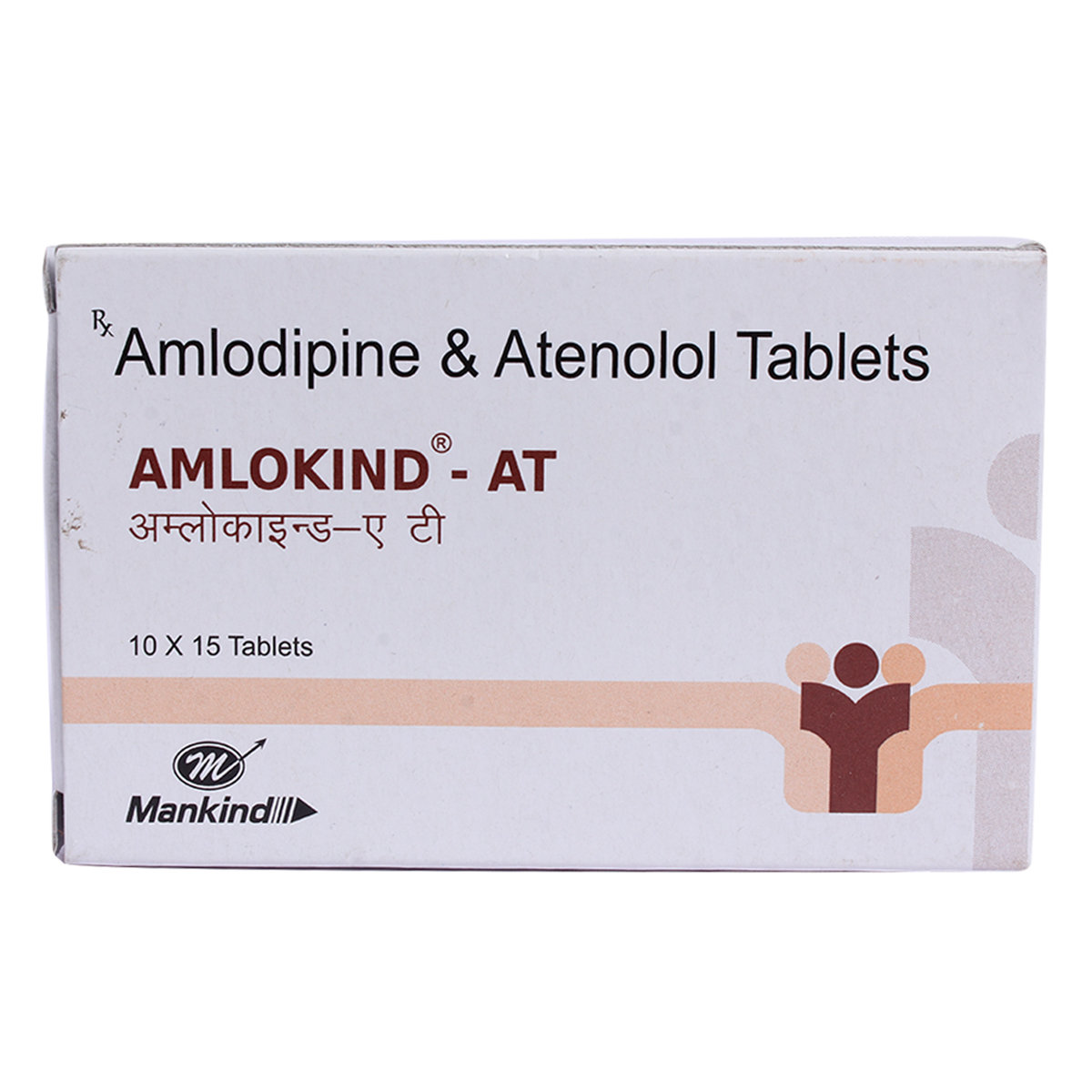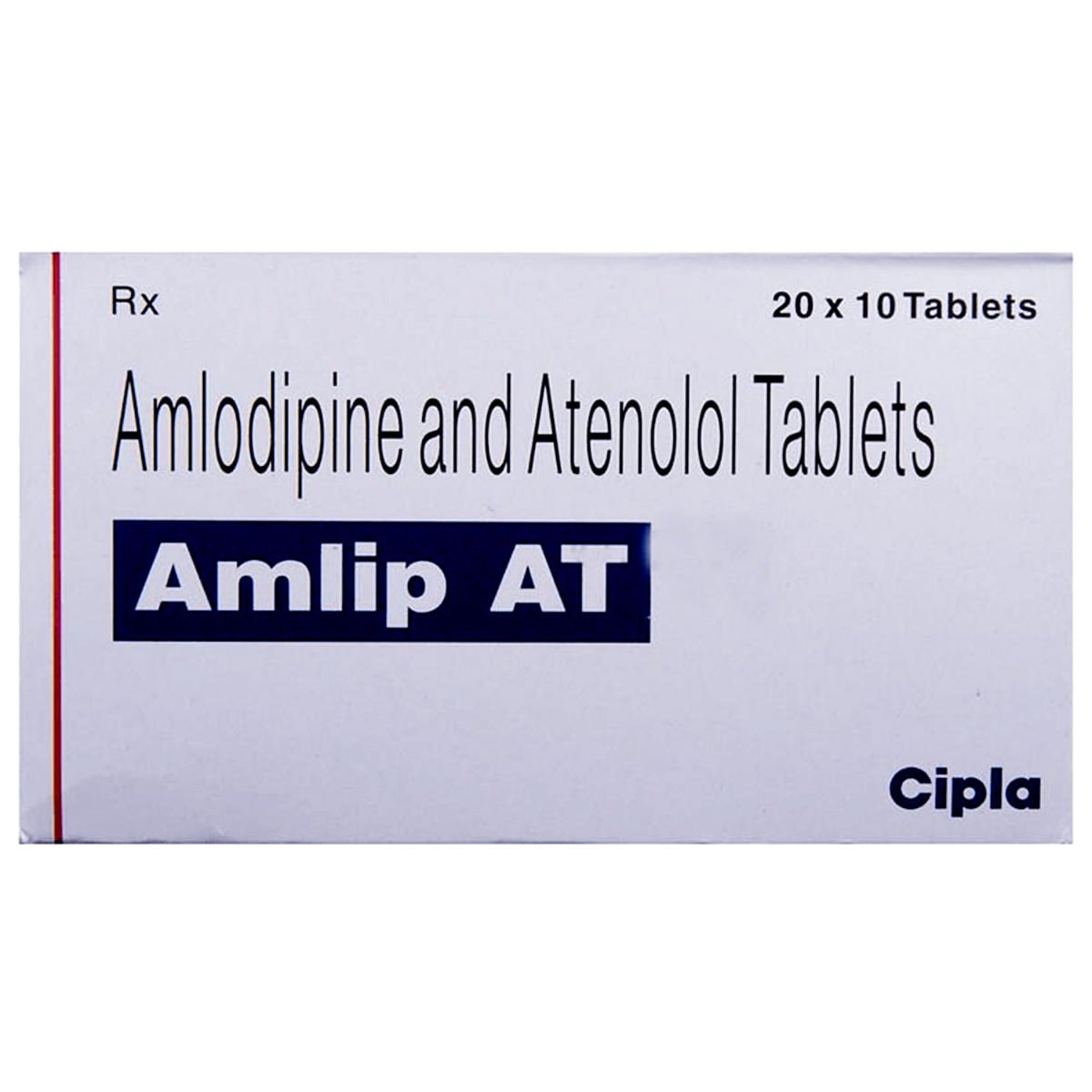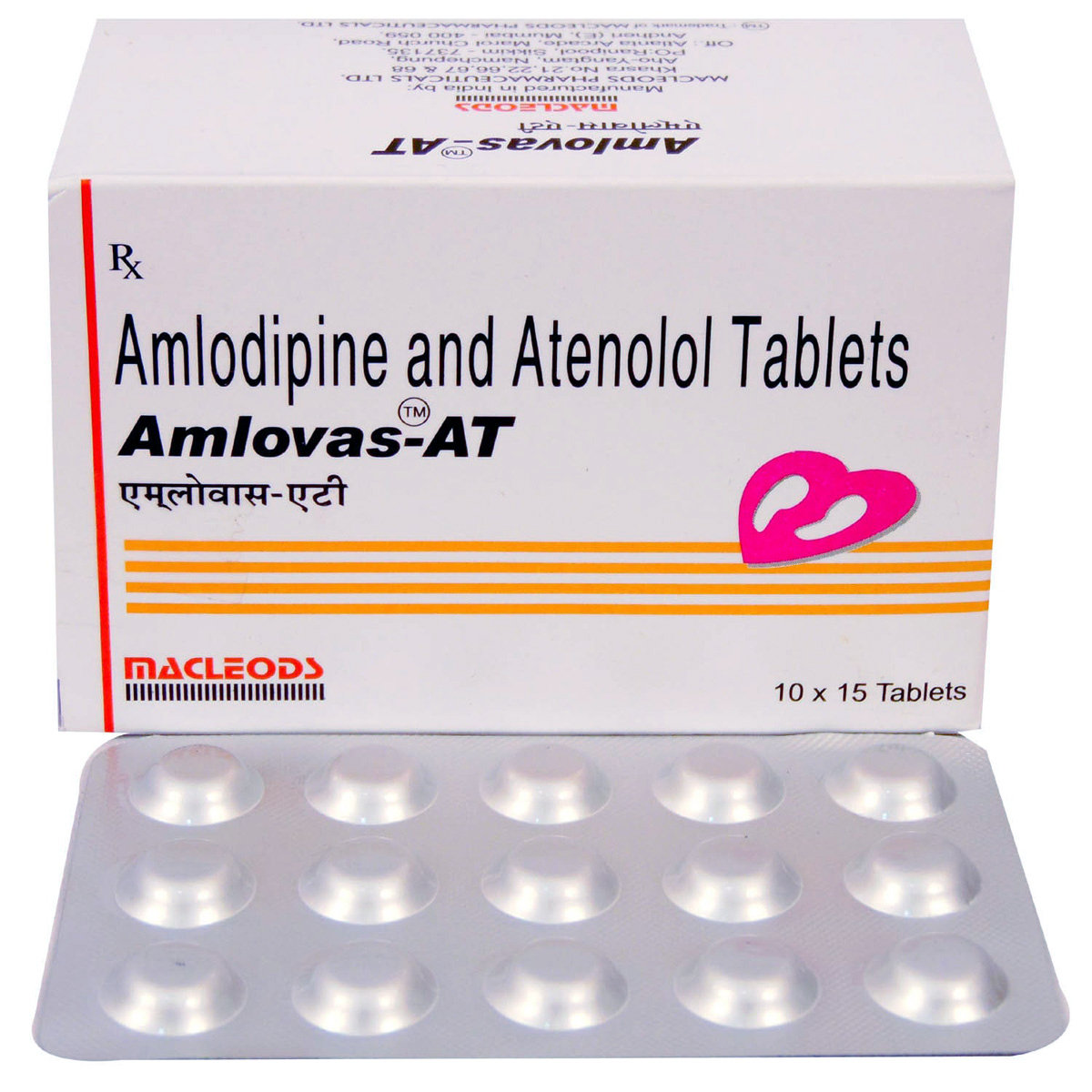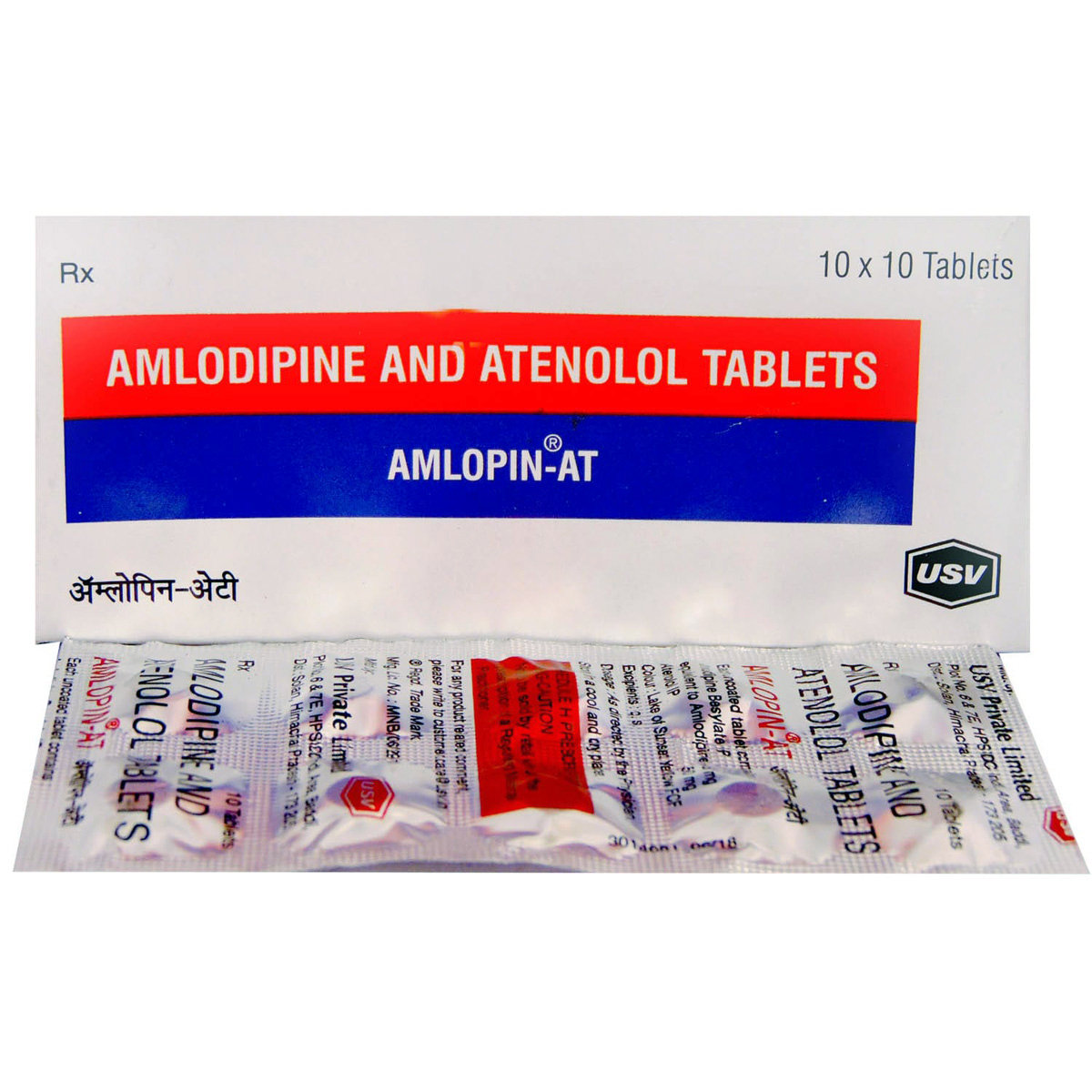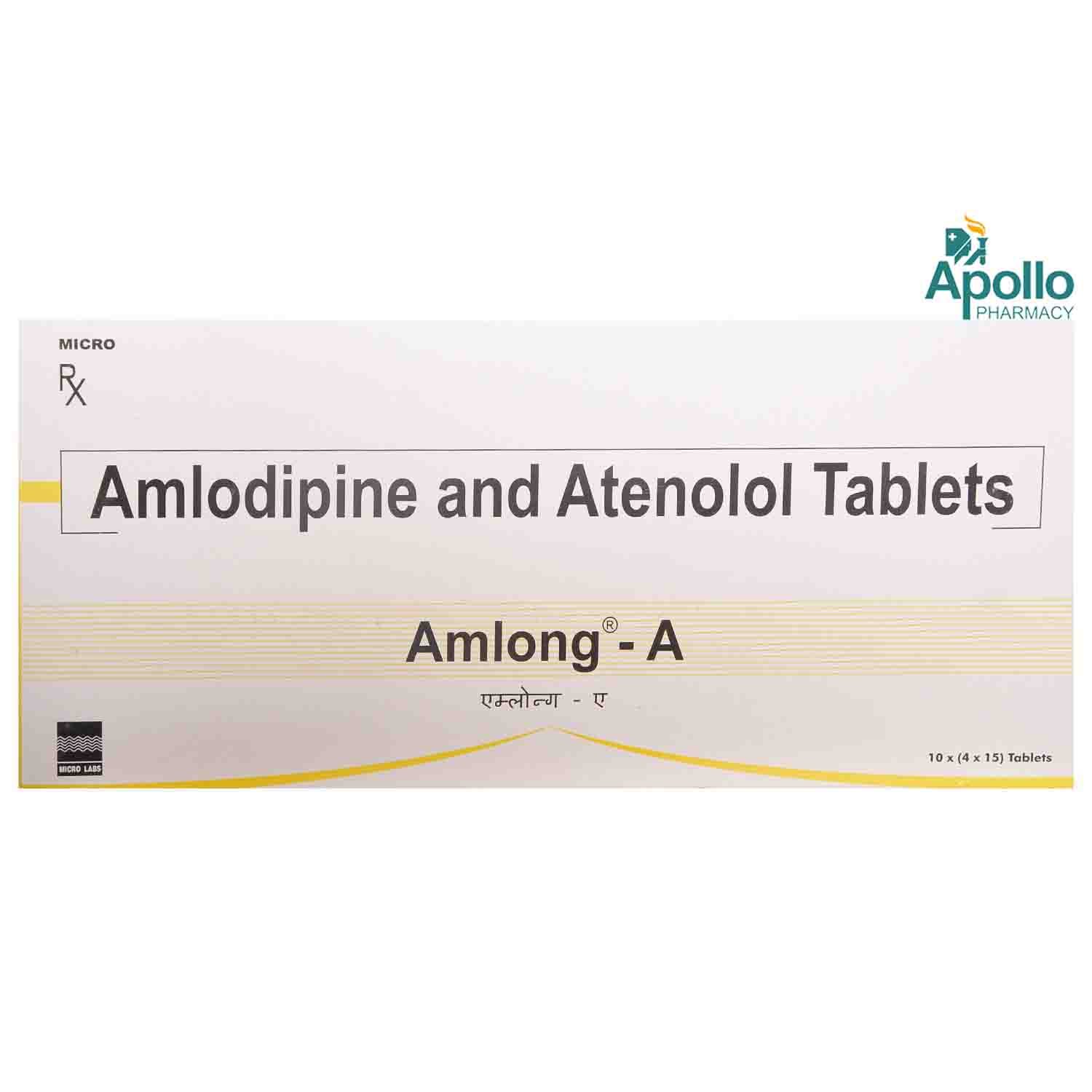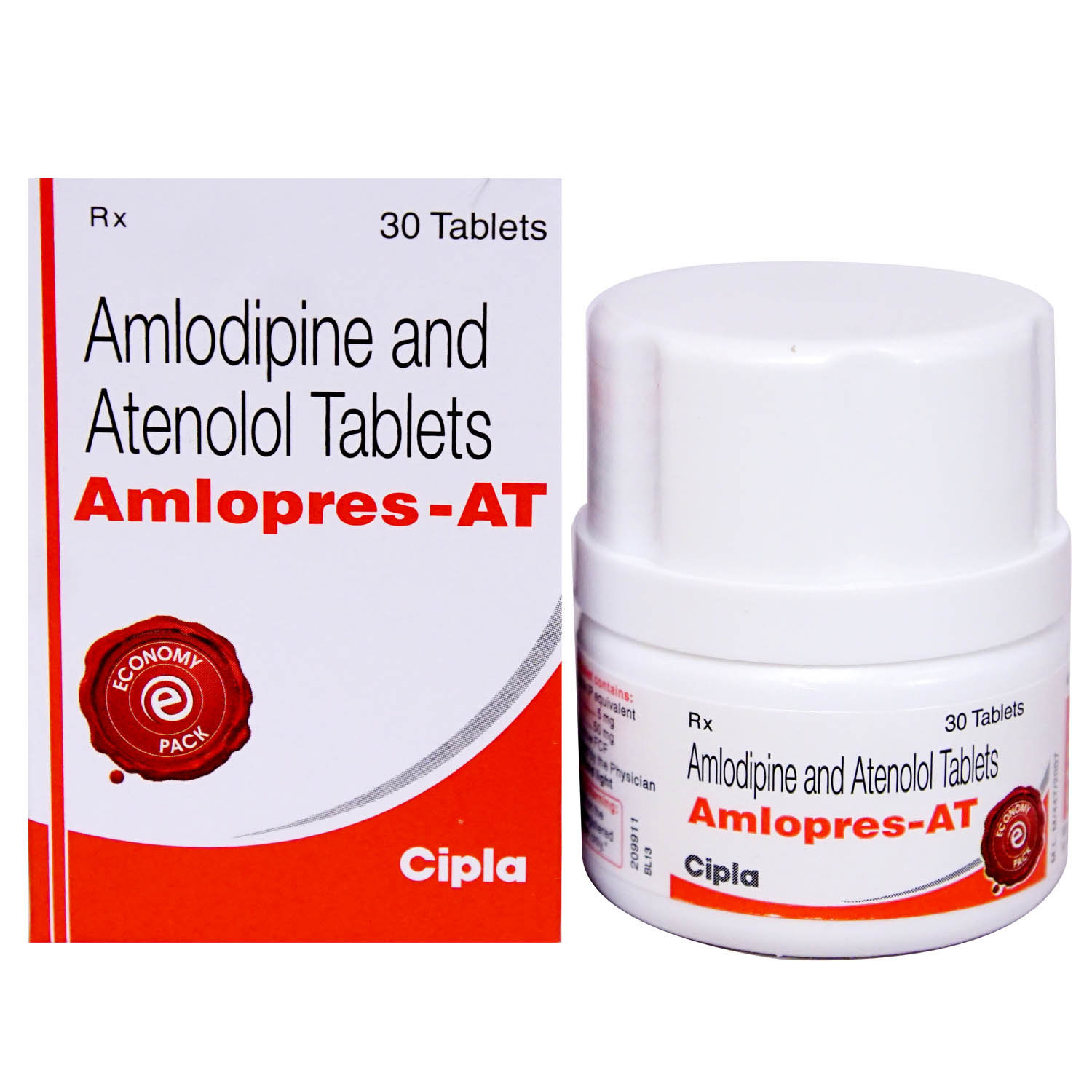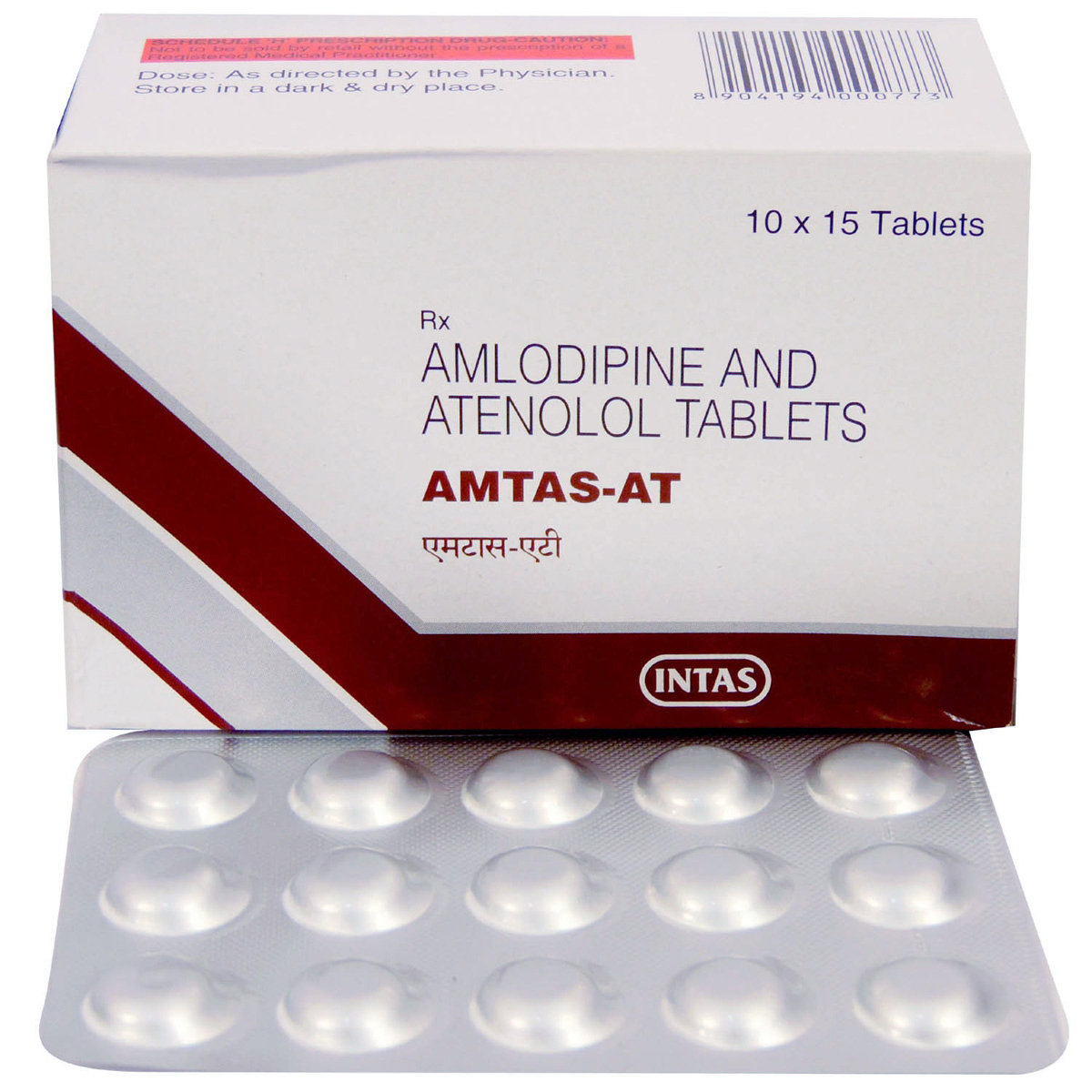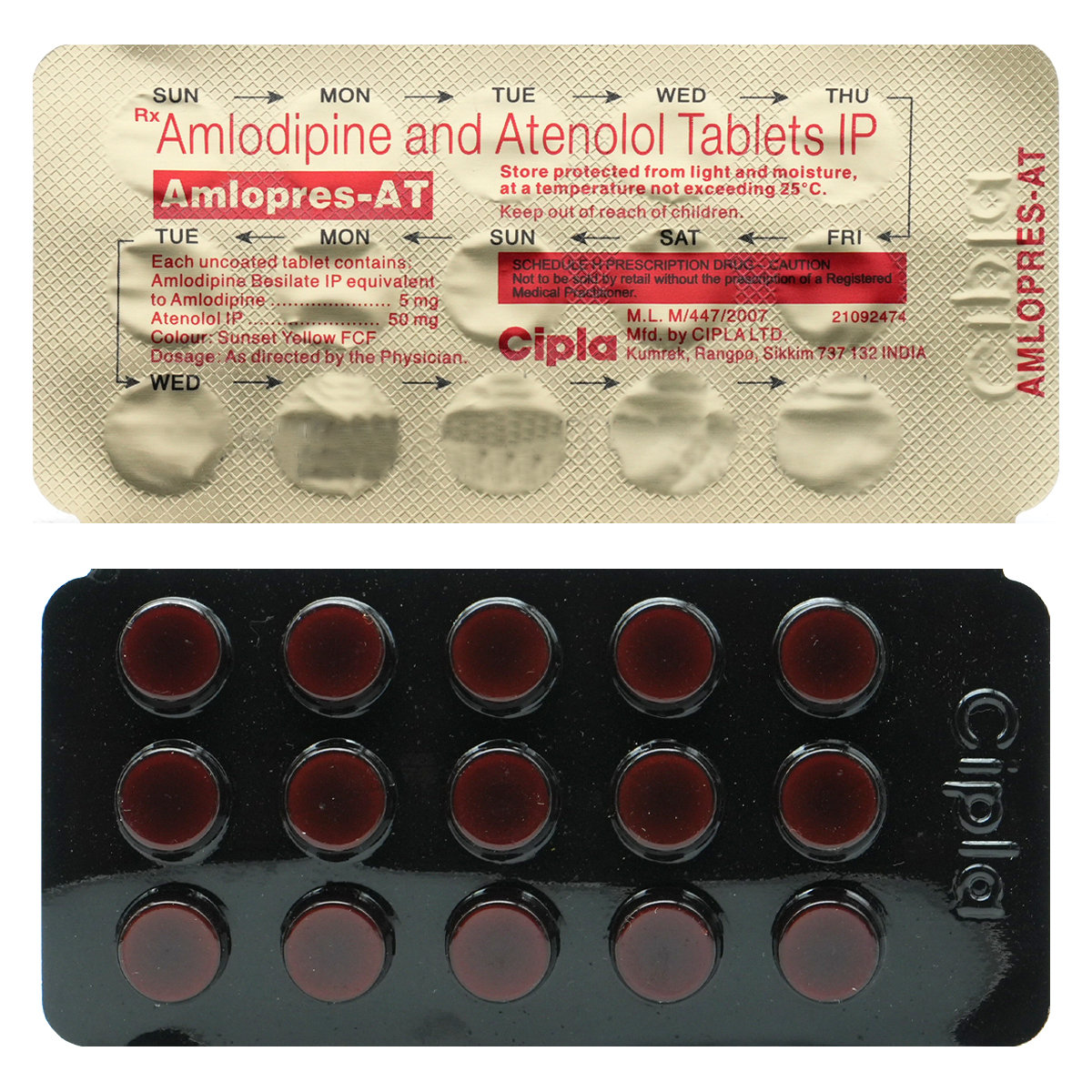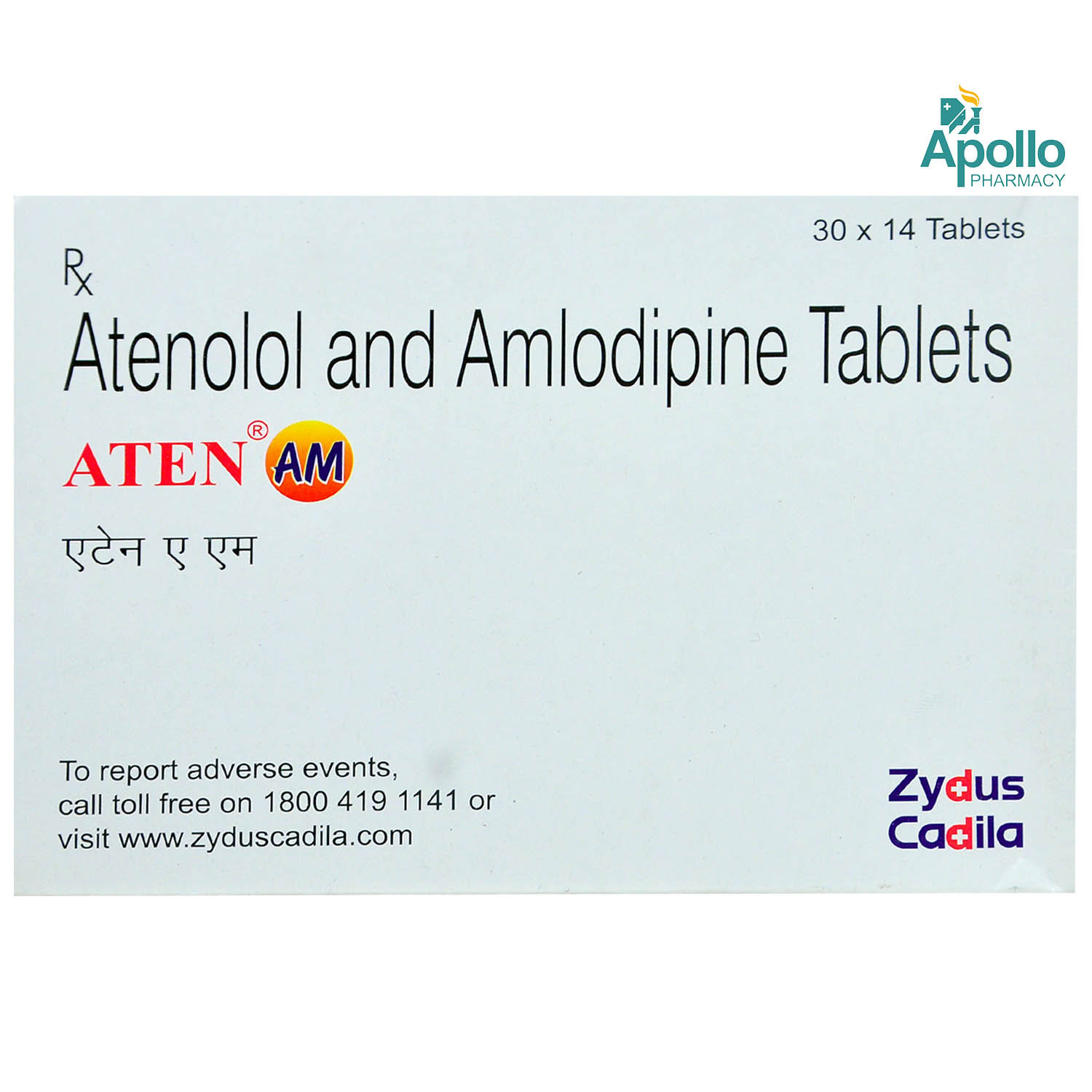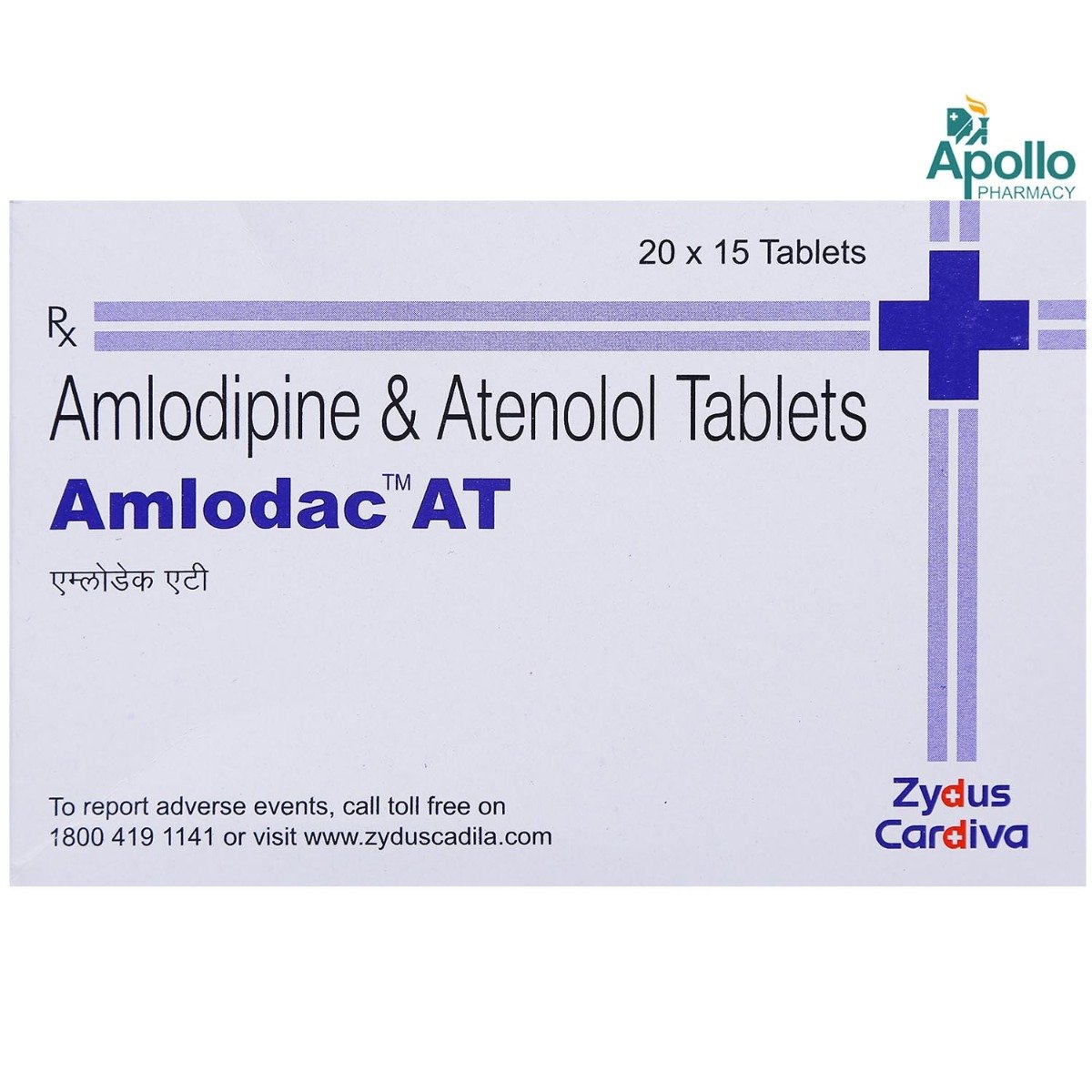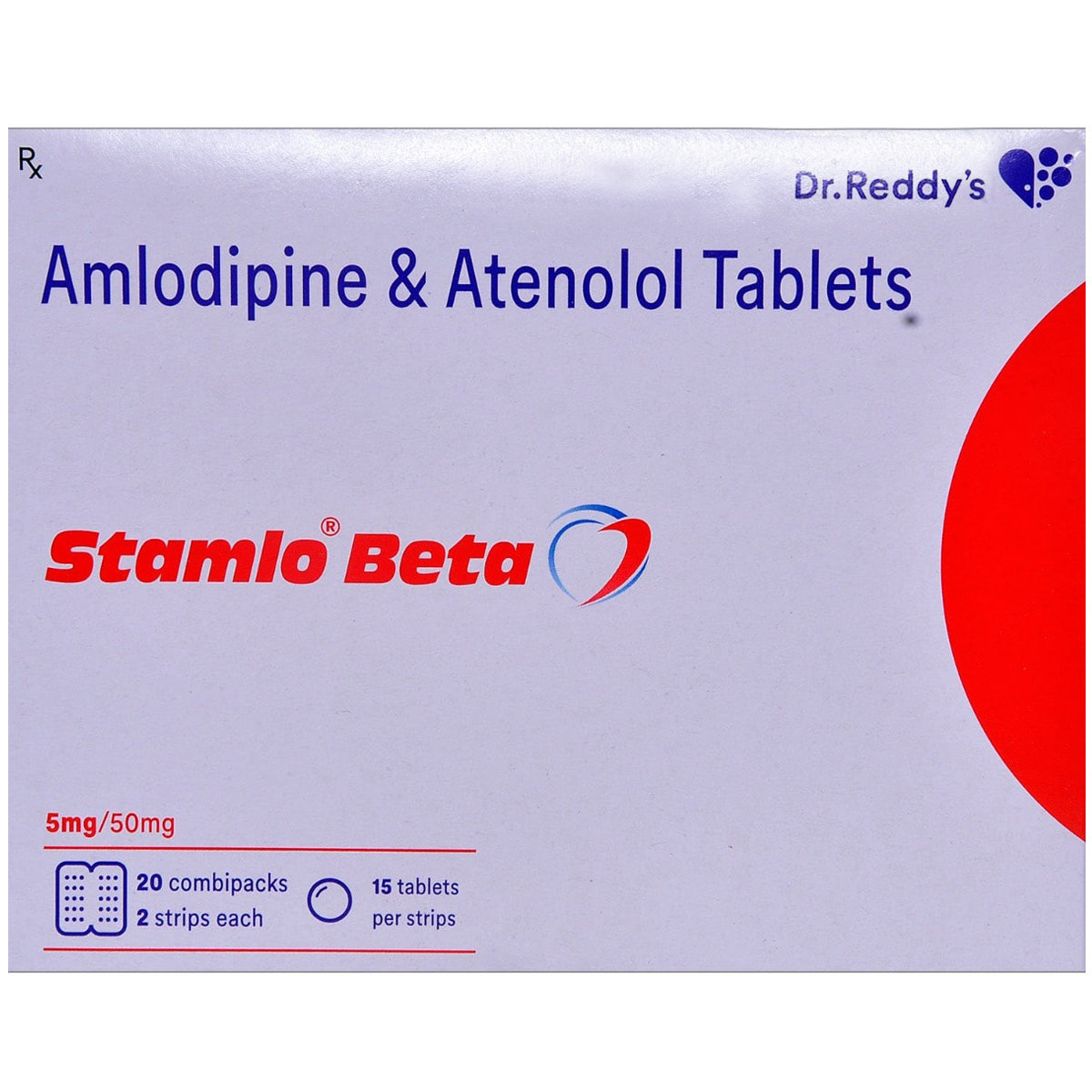Adp-AT Tablet 10's
MRP ₹43
(Inclusive of all Taxes)
₹6.5 Cashback (15%)
Provide Delivery Location
Online payment accepted
 Prescription drug
Prescription drugWhats That
Composition :
Manufacturer/Marketer :
Consume Type :
Expires on or after :
Return Policy :
About Adp-AT Tablet
Adp-AT Tablet belongs to a class of 'anti-hypertensive' medication primarily used to treat hypertension (high blood pressure). Hypertension (high blood pressure) is a lifelong or chronic condition in which the blood pressure against the artery walls becomes too high. This can lead to damaged blood vessels, heart disease, stroke, kidney disease, and other problems.
Adp-AT Tablet contains Amlodipine (a calcium channel blocker) and Atenolol (a beta-blocker). Amlodipine acts by relaxing and widening the constricted blood vessels. This ultimately reduces the heart's workload and makes the heart more efficient at pumping blood throughout the body. Atenolol works by blocking stress hormones like adrenaline and epinephrine, thereby slowing down the increased heart rate. Thus, it helps lower raised blood pressure, reducing the chances of heart attack or stroke in the future.
Take Adp-AT Tablet as prescribed by your doctor. Depending upon your medical condition, you are advised to take Adp-AT Tablet for as long as your doctor has prescribed it for you. The most common side effects of Adp-AT Tablet are nausea, sleepiness, ankle swelling, headache, palpitations, low blood pressure, cold extremities, flushing (sense of warmth in the ears, face, neck, and trunk), slow heart rate, oedema (swelling), constipation, tiredness. They do not require medical attention and gradually resolve over time. However, if the side effects are persistent, reach out to your doctor.
Inform your doctor if you have had an allergic reaction to Adp-AT Tablet , are pregnant or are planning to get pregnant, are breastfeeding, have liver disease, kidney disease, heart failure, a heart valve problem or a history of a heart attack. It is recommended to monitor your blood pressure if you have ever had a stroke or heart attack or are currently taking other blood pressure-lowering pills. It is advised to continue taking this drug and not stop taking it suddenly without consulting your doctor. It is advisable to drink plenty of fluids while taking this medicine. However, kidney patients should avoid taking plenty of fluids.
Uses of Adp-AT Tablet
Directions for Use
Key Benefits
Adp-AT Tablet is a combination drug containing 'anti-hypertensive' drugs containing Amlodipine (a calcium channel blocker) and Atenolol (a beta-blocker) primarily taken for the treatment of hypertension (high blood pressure). Adp-AT Tablet reduces the heart's workload making the heart more efficient at pumping blood throughout the body and relaxing and widening the blood vessel. Thus, it collectively helps lower high blood pressure, reducing the chances of heart attack or stroke.
Storage
- Inform your doctor about dizziness symptoms. They may adjust your medication regimen or prescribe additional medications to manage symptoms.
- Follow your doctor's instructions for taking medication, and take it at the same time every day to minimize dizziness.
- When standing up, do so slowly and carefully to avoid sudden dizziness.
- Avoid making sudden movements, such as turning or bending quickly, which can exacerbate dizziness.
- Drink plenty of water throughout the day to stay hydrated and help alleviate dizziness symptoms.
- If you're feeling dizzy, sit or lie down and rest until the dizziness passes.
- Track when dizziness occurs and any factors that may trigger it, and share this information with your doctor to help manage symptoms.
- Rest well; get enough sleep.
- Eat a balanced diet and drink enough water.
- Manage stress with yoga and meditation.
- Limit alcohol and caffeine.
- Physical activities like walking or jogging might help boost energy and make you feel less tired.
- Remember, managing depression as a side effect of medication requires patience, persistence, and collaboration with your healthcare team.
- Tell your doctor about your depression symptoms to adjust medication.
- Consult a therapist or counsel for emotional support.
- Engage in regular exercise to release endorphins (neurotransmitters).
- Practice stress-reducing techniques like meditation and deep breathing.
- Build a support network of friends, family, and support groups.
- Establish a consistent sleep schedule.
- Eat a nutritious diet rich in fruits, vegetables, and whole grains.
- Limit or avoid alcohol and recreational substances.
- Keep a mood journal to track symptoms and progress.
- Reduce salt intake to minimize fluid buildup.
- Use compression stockings, sleeves, or gloves.
- Gently massage the affected area towards the heart.
- Protect the swollen area from injury and keep it clean.
- Use lotion or cream to keep the skin moisturized.
- Exercising regularly helps lower the risk of heart problems.
- Maintain a healthy diet, including vegetables and fruits.
- Rest well; get enough sleep.
- Manage stress with yoga and meditation.
- Limit alcohol and smoking.
- Reducing the amount of time you spend outside and indoors in the cold.
- keeping your hands warm by donning mittens, gloves, or other protective clothing.
- Observing a skincare regimen that safeguards your fingers and hands.
- To improve circulation, give your hands and feet a little massage.
Drug Warnings
Inform your doctor if you have had an allergic reaction to Adp-AT Tablet , are pregnant or are planning to get pregnant, are breastfeeding, have liver disease, kidney disease, heart failure, a heart valve problem, or have a history of a heart attack. And also disclose to your doctor all the prescription and over-the-counter medications you use, including vitamins, minerals, herbal products, and drugs other prescribed medications. You must closely monitor your blood pressure if you have ever had a stroke or heart attack or are currently taking other blood pressure-lowering pills. Do not start using a new medication without telling your doctor. And also, keep your doctor informed if you are taking anti-diabetic medicines along with Adp-AT Tablet . Adp-AT Tablet contains Atenolol, a category D pregnancy drug, so it should not be taken if you are pregnant, planning to become pregnant, or breastfeeding, as it can harm the baby. Lifestyle changes are beneficial in achieving optimum outcomes with Adp-AT Tablet and keeping blood pressure under check. A low salt diet, daily physical activity, losing weight in the case of people who are obese, etc., are the mainstay of the treatment of hypertension.
Drug-Drug Interactions
Drug-Drug Interactions
Login/Sign Up
Using Adp-AT Tablet together with dantrolene may increase the risk of hyperkalemia (high blood potassium).
How to manage the interaction:
Taking Adp-AT Tablet with Dantrolene can cause an interaction, consult a doctor before taking it. You should seek medical attention if you experience nausea, vomiting, weakness, confusion, tingling of the hands and feet, a weak pulse, or a slow or irregular heartbeat. Do not stop using any medications without talking to a doctor.
Using Adp-AT Tablet and mitotane together may drastically lower Adp-AT Tablet blood levels, which makes the medicine less effective.
How to manage the interaction:
Although co-administration of Adp-AT Tablet with mitotane can result in an interaction, it can be taken if a doctor has advised it. Do not discontinue any medications without consulting a doctor.
Using phenobarbital and Adp-AT Tablet may drastically lower Adp-AT Tablet blood levels, which makes the medicine less effective.
How to manage the interaction:
Although co-administration of phenobarbital with Adp-AT Tablet can result in an interaction, it can be taken if a doctor has advised it. Do not discontinue any medications without consulting a doctor.
Coadministration of Adp-AT Tablet and carbamazepine together may significantly reduce Adp-AT Tablet blood levels, making the medicine less effective.
How to manage the interaction:
Although there is an interaction between Adp-AT Tablet with carbamazepine, it can be taken if a doctor has advised it. However, if you experience any unusual symptoms contact the doctor immediately. Do not stop using any medications without talking to a doctor.
Using Adp-AT Tablet and phenytoin together may drastically lower Adp-AT Tablet blood levels, which makes the medicine less effective.
How to manage the interaction:
Although Adp-AT Tablet with phenytoin can result in an interaction, it can be taken if a doctor has advised it. Do not discontinue any medications without consulting a doctor.
Using Adp-AT Tablet and primidone together may lower Adp-AT Tablet blood levels, which makes the medicine less effective.
How to manage the interaction:
Although co-administration of Adp-AT Tablet with primidone can result in an interaction, it can be taken if a doctor has advised it. Do not discontinue any medications without consulting a doctor.
Coadministration of lemborexant and Adp-AT Tablet may increase the blood levels of lemborexant.
How to manage the interaction:
Although co-administration of Adp-AT Tablet with Lemborexant can result in an interaction, it can be taken if a doctor has advised it. However, consult your doctor if you experience abnormal sleep patterns, worsening of depression, changes in heartbeat, or headache. Do not discontinue any medications without consulting a doctor.
Taking simvastatin with Adp-AT Tablet may result in considerably higher blood levels of simvastatin and may increase the risk of side effects (liver damage and rhabdomyolysis - an uncommon but serious illness characterized by the breakdown of skeletal muscle tissue).
How to manage the interaction:
Although taking Adp-AT Tablet with simvastatin can result in an interaction, it can be taken if a doctor has advised it. If you have unexplained muscular pain, soreness, or weakness while using simvastatin, especially if these symptoms are accompanied by fever or dark-colored urine, consult the doctor immediately. However, if you develop a fever, chills, joint pain or swelling, unusual bleeding or bruising, skin rash, itching, loss of appetite, fatigue, nausea, vomiting, dark colored urine, and/or yellowing of the skin or eyes, consult the doctor. Do not stop using any medications without a doctor's advice.
Co-administration of Adp-AT Tablet can make Sirolimus may increase the risk of angioedema (a condition associated with swelling of the face, eyes, lips, tongue, throat, and occasionally also the hands and feet).
How to manage the interaction:
There may be a possibility of interaction between Adp-AT Tablet and Sirolimus, but it can be taken if prescribed by a doctor. However, consult the doctor if you notice any swelling of the face, eyes, lips, tongue, throat, hands and feet or have trouble breathing or swallowing. Do not stop using any medications without a doctor's advice.
Co-administration of Tizanidine and Adp-AT Tablet can increase the risk or severity of developing side effects like low blood pressure.
How to manage the interaction:
Although co-administration of Adp-AT Tablet with tizanidine can result in an interaction, it can be taken when a doctor has advised it. However, if you experience headache, dizziness, palpitations, or irregular heart rate while taking these drugs, contact the doctor immediately. Use caution while getting up from a sitting or sleeping position and avoid driving or using dangerous machinery. Do not discontinue any medications without consulting the doctor.
Drug-Food Interactions
Drug-Food Interactions
Login/Sign Up
Grapefruit Juice, Grapefruit
How to manage the interaction:
The consumption of grapefruit juice may slightly increase plasma concentrations of amlodipine. Avoid consumption of grapefruit juice while being treated with Adp-AT Tablet.
Diet & Lifestyle Advise
- Create a well-balanced and healthy diet that includes vegetables, fruits, whole grains, legumes, omega-3-rich foods, and lean protein sources.
- Keep your weight under control with a BMI of 19.5-24.9.
- Avoid chronic stress, as it can raise your blood pressure.
- Spend time with your loved ones to cope with stress and practice mindfulness techniques.
- Be mindful of salt; consume no more than 2,300 mg each day.
- Limit or avoid alcohol consumption.
- Quitting smoking is the best strategy to lower the risk of heart disease.
Side Effects of Adp-AT Tablet
- Nausea
- Sleepiness
- Ankle swelling
- Headache
- Palpitations
- Cold extremities
- Flushing (sense of warmth in the face, ears, neck, and trunk)
- Slow heart rate
- Oedema (swelling)
- Constipation
- Tiredness
Habit Forming
Therapeutic Class
All Substitutes & Brand Comparisons
RX
Amodep AT 5/50 Tablet 15's
FDC Ltd
₹47.5
(₹2.85 per unit)
26% CHEAPERRX
Amlokind-AT 5 mg/50 mg Tablet 15's
Mankind Pharma Pvt Ltd
₹55.5
(₹3.33 per unit)
13% CHEAPERRX
Amlosafe AT 5/50 Tablet 15's
Aristo Pharmaceuticals Pvt Ltd
₹117.5
(₹7.05 per unit)
82% COSTLIER
Drug-Diseases Interactions
Drug-Diseases Interactions
Login/Sign Up
FAQs
Drug-Drug Interactions Checker List
- AMILORIDE
- EPHEDRINE
- SPIRONOLACTONE
- LITHIUM
- BENAZEPRIL
- METOPROLOL
- RAMIPRIL
- HYDROCHLOROTHIAZIDE
- ATORVASTATIN
- SIMVASTATIN
- SILDENAFIL
- CLARITHROMYCIN
- ERYTHROMYCIN
- RIFAMPICIN
- ITRACONAZOLE
- KETOCONAZOLE
- RITONAVIR
- CARBAMAZEPINE
- PHENYTOIN
- PHENOBARBITAL
- PRIMIDONE
- CYCLOSPORINE
- TACROLIMUS
- IBUPROFEN
- ASPIRIN
Disease/Condition Glossary
Hypertension: The blood exerts increased pressure on the walls of blood vessels leading to hypertension. High blood pressure is expressed as systolic/diastolic pressure. Systolic pressure is the pressure in the arteries when the heart beats or pumps out blood. Diastolic pressure is the pressure in the arteries between the heartbeats. Blood pressure is measured in millimetres of mercury (mmHg) by a blood pressure monitor called a sphygmomanometer. Some of the symptoms are headache, dizziness, nosebleeds, altered vision, chest pain, weakness, and shortness of breath. However, most of the time, the signs and symptoms of hypertension are none.

Have a query?
Alcohol
Safe if prescribed
You are recommended not to consume alcohol and Adp-AT Tablet to avoid unpleasant side effects like lowering blood pressure (hypotension).
Pregnancy
Consult your doctor
Adp-AT Tablet contains atenolol, which is a pregnancy category D drug. It is known to harm the baby if taken during pregnancy. So it is better to avoid intake of Adp-AT Tablet in pregnant women in their second and third trimesters.
Breast Feeding
Consult your doctor
Adp-AT Tablet can pass through the breast milk and harm the baby, so it should not be taken while breastfeeding.
Driving
Safe if prescribed
Drive with caution. Adp-AT Tablet usually causes drowsiness and affects driving ability.
Liver
Consult your doctor
Adp-AT Tablet to be taken with caution, especially if you have had a history of liver disease. Your doctor will have to change the dosage depending on your medical condition and your reaction to treatment.
Kidney
Consult your doctor
Adp-AT Tablet to be taken with caution, especially if you have had a history of liver disease. Your doctor will have to change the dosage depending on your medical condition and your reaction to treatment.
Children
Safe if prescribed
Adp-AT Tablet is not recommended for children below six years of age without a doctor's consent. The dose is to be adjusted and guided by a child specialist only for children above six years.




